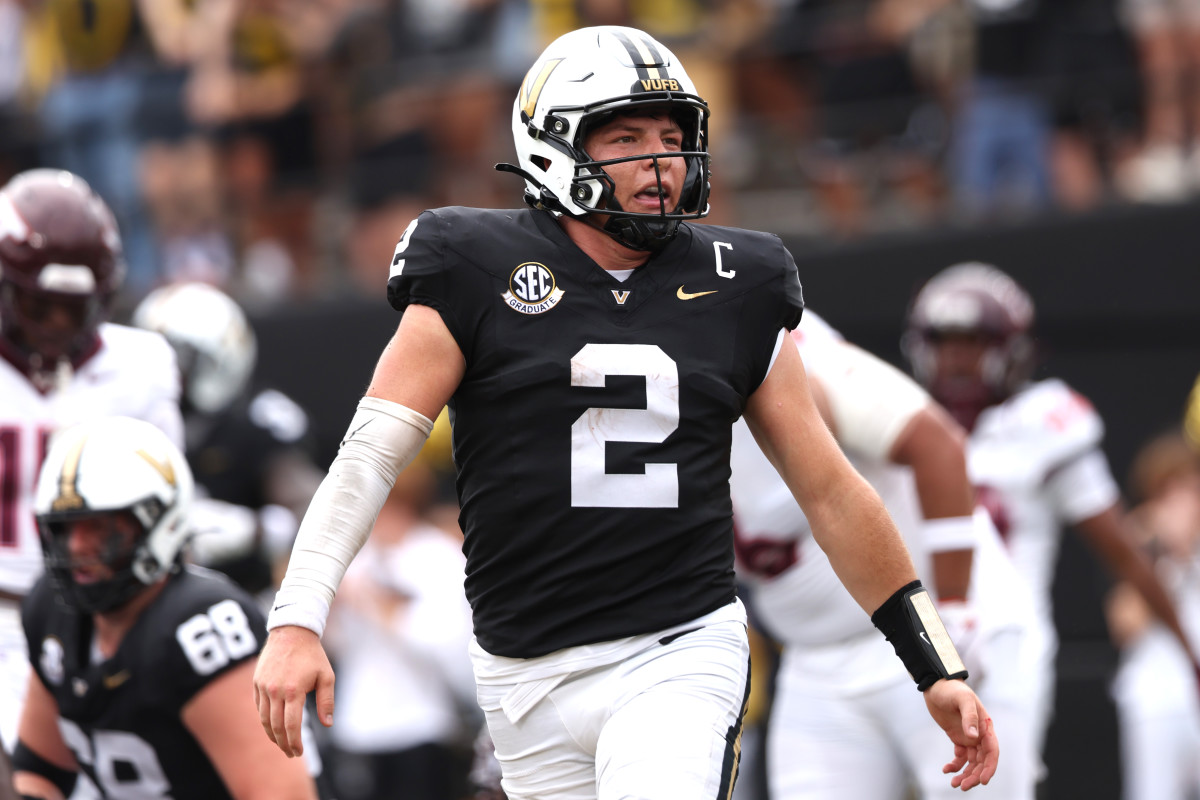Judge Rules On Vanderbilt QB Diego Pavia's Restraining Order vs. NCAA

11/12/2024 05:19 PM
Vanderbilt quarterback Diego Pavia has been one of college football's best stories on the field this fall.
Pavia, who transferred to Vandy from New Mexico State, has been a dual-threat monster, passing for 1,843 yards, 15 touchdowns and three interceptions while adding 628 rushing yards and five scores. At 6-4, the Commodores have already clinched their first bowl game in six years and with one more win can sew up their first winning regular season since James Franklin was coaching the program back in 2013.
Despite Pavia's success on the gridiron, the Albuquerque native decided he needed something else on his plate this month, as he filed a lawsuit against the NCAA.
Pavia sought a temporary restraining order (TRO) against the organization because he is currently unable to play next season because he competed at the junior college level in 2020-21.
Pavia's lawsuit was filed last Friday in the U.S. District Court of Middle Tennessee. On Tuesday, Judge William Campbell denied the quarterback's TRO request, putting a momentary halt to his legal claims.
"Given that Plaintiff has almost certainly been aware of the challenged bylaws and his ineligibility to play college football in the 2025-26 season for quite some time and has been discussing possible resolution with the NCAA, the Court is not persuaded that an ex parte order is justified," Campbell wrote, via On3.
In his initial complaint, Pavia contended he would suffer "irreparable harm" if he did not know his status before the NCAA transfer portal opened on Dec. 9.
As a result, Campbell said the court will put forth an "expedited briefing schedule" on the request of a preliminary injunction, but would allow Pavia and the NCAA the chance to provide a schedule first.
"Athletes playing football outside of the NCAA monopoly have no meaningful opportunity to profit off their name, image, or likeness," Pavia's initial complaint states. "Even so, JUCO Eligibility Limitation Bylaws restrict the ability of athletes who begin their college football careers in junior colleges from having the same opportunity to profit from NIL as students who enter an NCAA institution as freshmen.
"Specifically, the JUCO Eligibility Bylaws limit athletes who begin their college careers at junior colleges to only two or three seasons of NCAA Division I football, as opposed to the four seasons of competition (and NIL Compensation opportunities) available to all other NCAA Division I football players."
Related: Vanderbilt Quarterback Diego Pavia Sues NCAA Mid-Season
